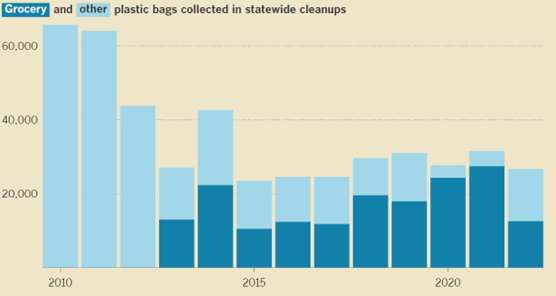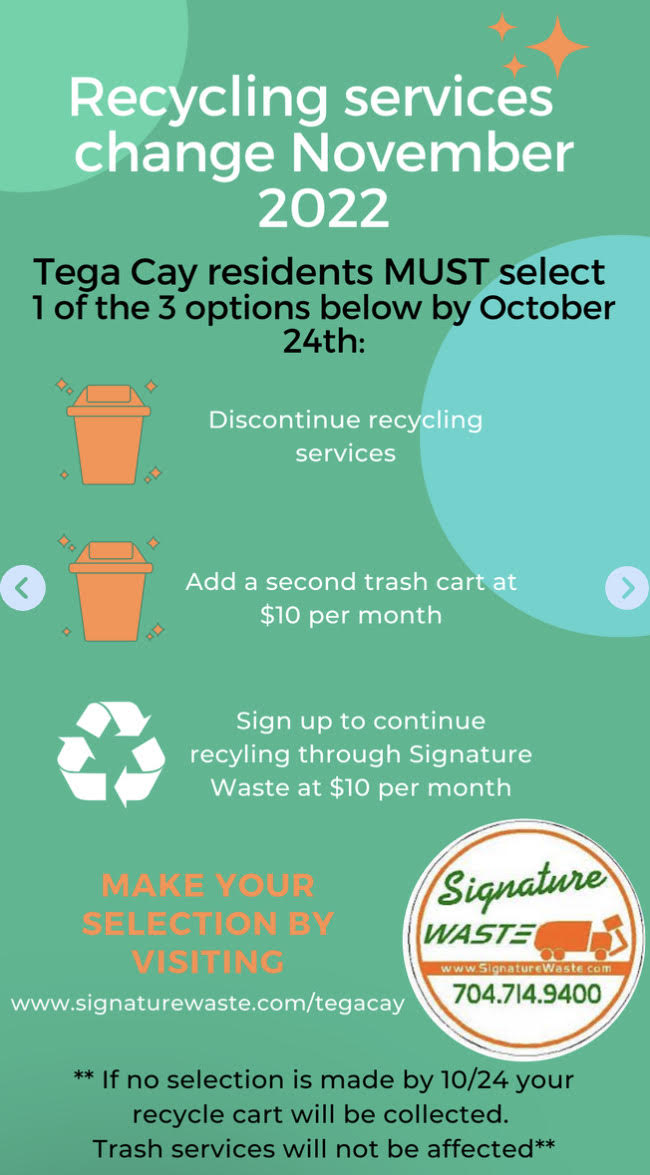Plastic bags have become ubiquitous in our lives, from grocery stores to retail shops. But as convenient as they are, they have become a major environmental issue, contributing to litter, pollution, and a growing waste problem.
The numbers are staggering: It’s estimated that over 1 trillion plastic bags are used worldwide each year. [1] Around 100 billion plastic bags are thrown away annually in the United States alone. [2] The rest end up in landfills, oceans, and other natural environments, where decomposing takes hundreds of years.
Believe it or not, plastic bags are recyclable. But not in your typical recycling bin. They must be taken to a specialized facility for processing. These facilities are sparse in the United States. Municipal recycling plants don’t take plastic bags due to how expensive it is to recycle them. Many Americans are unaware that these bags cannot be recycled conventionally with the rest of their recyclables [3]. Only 1% of plastic bags end up getting recycled in America. [2] Both inaccessibility to recycling and lack of public knowledge have led to an abundance of bags being redirected from recycling facilities to landfills.
Recognizing the environmental impact, some states and municipalities have discouraged plastic bag usage by implementing fees or taxes on single-use plastic bags. For example, California imposes a minimum 10-cent charge for each plastic carryout bag provided by retailers. [4] Similar laws exist in Hawaii, Delaware, Maine, Oregon, and others.
The idea behind these charges is simple: By making plastic bags more expensive, consumers will be incentivized to bring their own reusable bags instead. The fees collected can go towards environmental initiatives or efforts to provide reusable bags.
But do these fees really make a difference?
Initially, the amount of plastic bag waste collected during trash clean-ups reduced. However, the number of plastic bags collected during cleanups has remained relatively flat since 2016. [3] The graph below shows this trend, with a dip in 2021, likely an effect of COVID. The type of plastic was not categorized before 2012.

The efficacy of the tax hinges on consumer behavior and attitudes toward convenience. For many individuals, the convenience of plastic bags outweighs the nominal cost imposed by the tax. Thus, while the financial incentive may deter some from opting for plastic bags, many consumers remain willing to pay a modest fee in exchange for convenience.
Ultimately, plastic bags are just one part of a much larger problem: our society’s reliance on single-use plastics and the lack of proper recycling and waste management systems. While plastic bag charges may help raise awareness and encourage a shift in consumer habits, more comprehensive solutions are needed to address the root causes of plastic pollution. This could include greater investment in recycling infrastructure, incentives for businesses to adopt more sustainable packaging alternatives, and a broader cultural shift towards embracing a more circular economy – prioritizing reusing and repurposing materials rather than disposing of them after a single use.
Even as we strive for systemic changes, individual actions can still make a difference. By making conscious choices to reduce our reliance on single-use plastics and seeking out environmentally friendly alternatives, we can collectively contribute to a more sustainable future. For instance, there is a way you can redirect some of your plastic bag waste here in Greenville. Some stores, such as Publix, accept plastic bags that they send to be processed at their facilities. So, if you forget your reusable bag, you can still clean your conscience. Contribute to the whopping 1% of plastic bags that really are recycled!
Sources:
[1] https://www.earthday.org/fact-sheet-plastics-in-the-ocean/
[2] https://www.epa.gov/facts-and-figures-about-materials-waste-and-recycling/plastics-material-specific-data
[3] https://www.latimes.com/environment/story/2023-08-24/whats-the-deal-with-single-use-plastic-bag-bans
[4] https://www.calrecycle.ca.gov/plastics/carryoutbags
